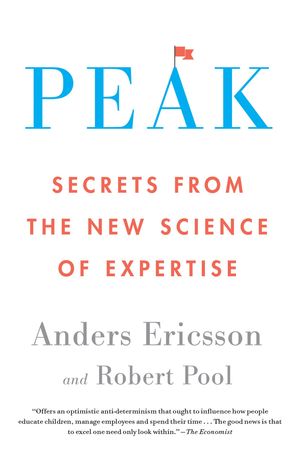
Peak: Secrets from the New Science of Expertise
by Anders Ericsson and Robert Pool
read in Jun 2020
book info on goodreads
The key concept that Ericsson develops in this book is what he refers to deliberate practice. He distinguished deliberate practice from common practice as systematic and purposeful practice. Deliberate practice requires focused attention on the task at hand. Deliberate practice also requires clear and measurable goals one is working towards. Finally, deliberate practice requires immediate feedback so that one can track one’s progress towards the set goal. In other words, it is key for deliberate practice to work to break down a larger task into small actions with clear goals that one can see improvement on. Ericsson suggests that a trainer or mentor is capable of assisting with all three of these principles by steering one’s attention, setting goals and providing feedback.
However, Ericsson also provides examples of how can practice deliberately without a trainer. He draws from Benjamin Franklin’s autobiography and shows how he has developed deliberate practice techniques to become better at writing.
While students that follow a common practice routine also see improvement over time, they most certainly hit a plateau at some point from which on they will not improve any further. A deliberate practice routine can help overcome such plateaus. For instance, Ericsson argues that expert performers such as avantgarde scientists who push the boundaries of their fields follow the same or similar practice routine that brought them to the edge of their field in the first place. Innovation in scientific or other fields is a long, slow and iterative process or deliberate practice.